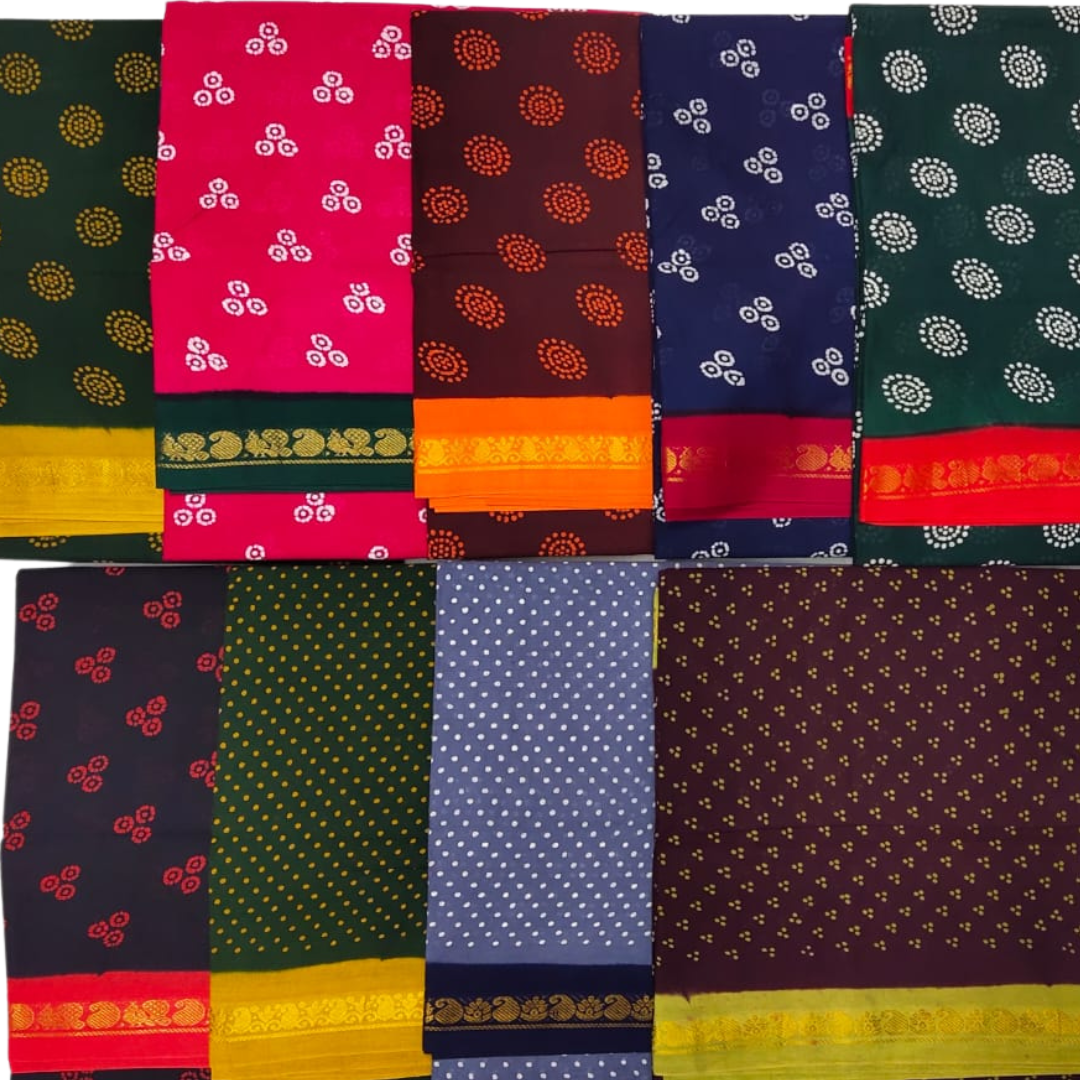Madurai Sungudi sarees are a traditional handloom saree from Madurai, a city in Tamil Nadu, India.

The sarees' vibrant colours and unique designs are created using a tie & dye technique. The process involves using small wooden blocks to create patterns on the fabric before dying it. This results in intricate designs that are specific to Madurai Sungudi sarees. The technique was introduced by the Saurashtrians (present-day Gujarat), who migrated to South India around the 8th to 11th century and settled in Madurai. 'Sungudi' refers to the dotted patterns commonly seen in these sarees.

Tamil Nadu's hot and humid climate makes cotton, a breathable and comfortable fabric, well-suited for making sarees. Weavers turn cotton into a lightweight fabric that drapes well, making it perfect for everyday wear. They are also ideal for special occasions and festivals.
The colours used to dye the sarees are typically bright and bold, with a wide range of shades, including red, orange, yellow, green, blue, and purple. These colours are created using natural dyes derived from plants and minerals. The natural dyes used in Madurai Sungudi sarees have good colour fastness and do not cause any health issues to the wearer.
Designers of Madurai Sungudi sarees use the sungudi technique to create geometric and floral designs that draw inspiration from nature. These designs symbolize the rich cultural heritage of Tamil Nadu. Collectors highly value Madurai Sungudi sarees and consider them a valuable part of India's traditional textile and cultural heritage.
We are witnessing a surge in demand for traditional handloom textiles in India, and Madurai Sungudi sarees have been gaining popularity again. It is partly due to the efforts of organizations and individuals working to preserve and promote India's traditional arts and crafts.
Click here to order Sungudi Sarees online.

